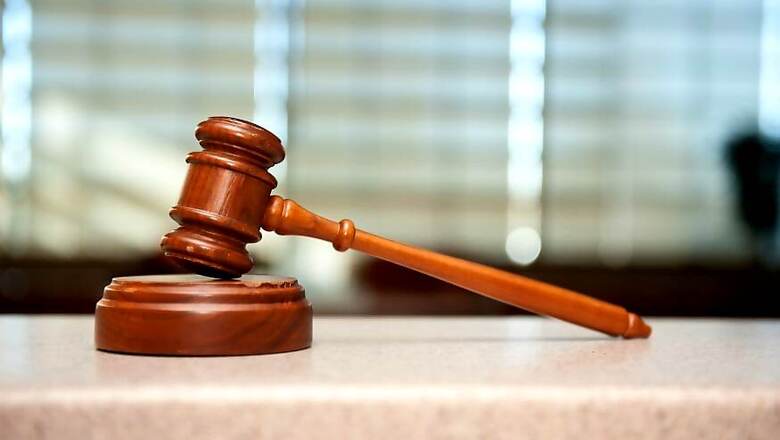
views
New Delhi: Over three decades after 69 people were killed and 127 were injured in a series of transistor bomb blasts across north India, a Delhi court has acquitted 30 of the 49 accused, owing to "defective, "lopsided", "unfair" and "faulty investigation".
Additional Sessions Judge Sandeep Yadav said the investigation suffered from various lacunae and the accused cannot be convicted in the 35-year-old case on the basis of evidence collected during such a faulty probe.
On the evening of May 10, 1985, bombs fitted in transistors went off in buses and other public places in Delhi and adjoining areas of Uttar Pradesh and Haryana, killing 49 people and injuring 127 in Delhi alone.
A Special Investigation Team (SIT), under the supervision of then DCP (Central) of Delhi Police, had chargesheeted 59 accused. While five of the 59 are proclaimed offenders and never appeared to face proceedings, the trial court in July 2006 discharged five due to "insufficient evidence".
Of the remaining 49 accused, 19 died during pendency of the trial, leaving 30 accused who have been on bail since 1986.
The court, in its 120-page verdict, said, "In some cases, public witnesses were associated with the investigation but they were not examined in the court. The indisputable conclusion is that the investigation conducted in these cases was defective, lopsided, unfair and suffered from various lacuna. Accused persons cannot be convicted on the basis of evidence collected during such faulty investigation."
The judge said it was amply clear from the evidence that during the probe, police officials had picked up various persons and made them approvers after pressurising and torturing them.
"Those persons were warned that if they did not depose as per demands of the police, they would be made an accused in the case. Even their family members were also pressurised and tortured by police...the police pressurised many people to depose on the dotted lines so as to create a false edifice of the alleged conspiracy," the court said.
The court said the prosecution has miserably failed to prove charges against the accused and acquitted Surjit Kaur, Manmohan Singh, Gurdev Singh, Buta Singh, Kulbir Singh alias Bhola, Inderjit Singh alias Happy, Hardeep Singh, Tirath Singh, Mukhtiar Singh, Bhupinder Singh alias Bhinda, Arvinder Singh alias Nitu, Anoop Singh and Manjeet Singh.
It also freed Joginderpal Singh Bhatia, Tarjit Singh, Saravjit Singh, Surinderpal Singh, Daljit Singh, Rajinder Singh, Sewa Singh, Surinderpal Singh alias Dolly, Shahbaz Singh, Sukhdev Singh, Jaspal Singh, Dalvinder Singh alias Pappa, Narender Singh, Gurmeet Singh, Harcharan Singh, Gurdeep Singh Sehgal and Gurmeet Singh alias Happy.
It said the police has not collected evidence to clarify whether the bomb placed in the bus by the accused exploded or remained unexploded and if bomb remained unexploded, whether same were diffused or not.
"No details/particulars of bus including its number, etc were collected by the investigating officer. In fact, nobody has come before the court to depose that he diffused the bombs.
"Even the original disclosure statements of these accused persons are not on record. There is no material on record to suggest that bomb placed by accused Mukhtiyar Singh, Anoop Singh, Bhupinder Singh, Arvinder Singh, Manjeet Singh and Tirath Singh and Daljeet Singh ever exploded," the court held.
It said that the prosecution's case is based on circumstantial evidence and in such a case, motive to commit the crime is an important factor to be proved by agency.
"It is the prosecution's version that accused persons had hatched a conspiracy to create disharmony amongst various communities to take revenge of Blue Star Operation and riots that happened in November 1984. However, prosecution miserably failed to prove that any relatives, friends, near and dears of accused persons died in 1984 riots or in Blue Star Operation," the court said.
Noting that vital documents like disclosure statements, seizure memos, statements under Section 164 CrPC and pamphlets/ letters are not on record, the court held it cannot even be said that these documents went missing as it was not established by prosecution that they existed or were filed with the charge sheet.
The recent court order, which comes at the end of an investigation and trial that saw eight FIRs, 14 charge sheets, 1,399 prosecution witnesses and around two dozen judges, the 30 accused have been acquitted of various charges of the Indian Penal Code, including murder, attempt to murder, criminal conspiracy and waging war against the Government of India, under the Explosive Substances Act and the Arms Act.
The cases from Uttar Pradesh and Haryana were later transferred to Delhi on the Supreme Court's direction.
Charges were framed in 2006, by which time many witnesses died or were not traceable and the original chargesheet filed by Delhi Police was misplaced, leading to an FIR and initiation of a departmental inquiry against the "court officials responsible".
The police case rested on the secret information they had received that transistor bombs were allegedly being manufactured at the home of one Kartar Singh Narang in West Delhi.
On May 12, 1985, police raided Narang's house and arrested him along with his alleged accomplices, Mohinder Singh Oberoi and Manmohan Singh Khalsa.
The police alleged to have recovered bombs, gunpowder, electronic devices, pistols and iron rods from the possession of the three men. Khalsa later died in police custody.

















Comments
0 comment